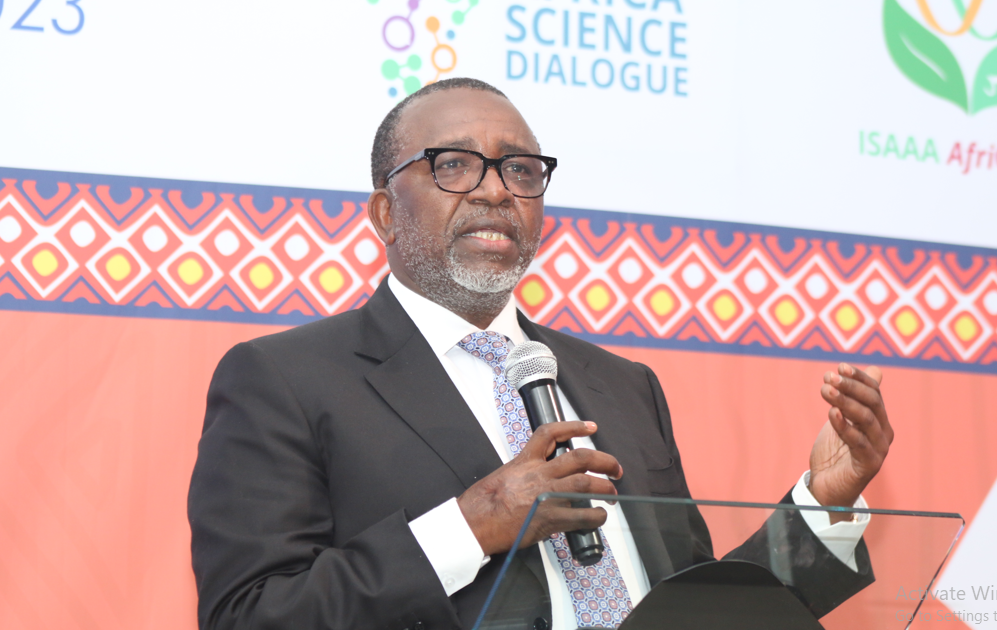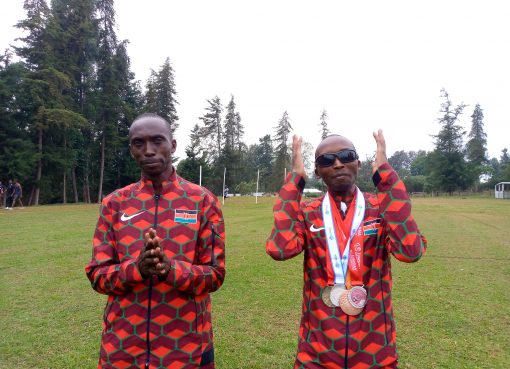Stakeholders in the agriculture sector have launched the Kenya Agriculture Data Sharing Platform, developed by the Ministry of Agriculture through KALRO with technical assistance from the Digital Green Foundation.
Agriculture Cabinet Secretary (CS) Mithika Linturi said that this innovative data exchange platform is designed to revolutionise the agricultural sector’s collaboration and innovation as it empowers organisations across the agricultural landscape to seamlessly share, integrate, and leverage valuable data for the greater good.
The platform will have a chatbot where farmers can ask questions and get prompt responses addressing their challenges, which are region- and ward-specific, and this will address the challenge of extension services.
The CS said that in Kenya Vision 2030, which stipulates a framework and policy direction towards achieving “a food-secure and prosperous nation,” the agricultural sector is expected to be a key pillar for delivering the 10 per cent annual economic growth envisaged under the economic pillar of Vision 2030.
“Data and digital solutions play an important enabling role in this transformation and should support the sector to achieve its primary objectives to increase small-scale farmer, pastoralist, and fisher folk incomes for approximately 3.3 million households and impact about 15 million Kenyans; increase food availability year-round by unlocking over 500,000 acres of agricultural production and agro-processing across priority value chains; boost household food resilience; and reduce the number of food-insecure Kenyans to zero,” said Linturi.
In a speech read on his behalf by the Ministry’s Administration Secretary, Haroun Katoo, during the launch on Tuesday, the CS said that information and communications technologies (ICTs) have become a powerful tool for farmers to access and organise the available knowledge in agriculture.
“In the region, Kenya takes the lead in using ICT in agriculture and has more digital-for-agriculture (D4Ag) enterprises and users. I acknowledge that digitalization in the food and agriculture sectors has enabled the provision of essential services across all the value-chain actors in the agriculture sector,” said Linturi.
He explained that while the sector may experience challenges such as pests, diseases, and unpredictable weather conditions, which are now worsened by climate change, he believes the integration of ICT innovations, technologies, and data will play a significant role in enabling better, timely, and actionable knowledge.
“Through ICTs, we can significantly increase the speed of receiving and distributing data, updates, and information in relation to weather situations,” he said.
Linturi said that his ministry has identified seven priority digital uses which target eligible farmers with e-incentives by accelerating the farmer registration process and using analytics on performance to improve the incentive scheme. This solution uses digital tools like the e-voucher to identify the right farmers, distribute them, and monitor the performance of the national e-incentive.
“To support this platform, recently the government, through the Ministry of ICT, laid down over 6,000 kilometres of optic fibre cables across the country to support the application and uptake of ICTs and therefore boost the efficiency of the platform,” said the CS.
KALRO Director General Dr. Eliud Kireger said that the provision of agricultural extension services in Kenya plays a critical role in the agricultural sector, and the government has invested heavily in extension services to reach the over six million farmers in the country.
Kireger said that there is still a challenge due to resource constraints and a very low ratio of extension officers per farmer, among other challenges.
“With the use of ICTs, e-extension services can be availed to nearly the entire population of farmers in Kenya without the need for a huge pool of extension officers,” he said.
The DG said the fact that most farmers in developing countries have mobile phones is an opportunity to provide mobile-based extension services that address key issues faced by the farmers and other agricultural value chain actors.
“In a country like Kenya, where mobile penetration is nearly 90%, the government and the private sector can provide excellent platforms for extension services that reach a greater part of the population. This has been proven to be impossible with the face-to-face visits that characterise the traditional provision of extension services,” said Kireger.
He explained that multiple technologies such as SMS, voice, installable applications, and the web can be combined in order to accommodate farmers with a diverse range of mobile devices.
Beryl Agengo from Digital Green said that they are working towards assisting the extension services challenge in the country, where the ratio is one extension officer serving approximately 100,000 people.
Agengo said that they are helping the extension officers support the farmers better by providing the right content and enabling faster distribution of the information.
“We have been using demonstration videos which are localised as they have been done by local farmers and extension officers, and it makes sense to the farmers to use them on their farms,” explained Agengo, adding that the Kenya Agriculture Data Sharing Platform gives more information in a cost-effective way.
She explained that they have so far done over 7,000 videos on YouTube in different local dialects, have more than 80 million views, and have worked with over 54,000 lead farmers and five million farmers across the board, with 70 per cent being women.
By Joseph Ng’ang’a




